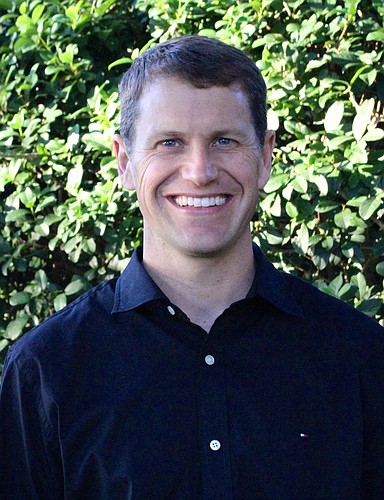- April 19, 2024
-
-
Loading

Loading

Many parents have had a difficult time choosing what type of education is better for their children during the pandemic. They could either keep their children home for virtual education, away from crowded classrooms and hallways — or send them back to school for face-to-face learning and the social need to be around other people.
The American Academy of Pediatrics said it is beneficial for children to be back in the classroom. The Centers for Disease Control and Prevention agrees.
Extended school closure is harmful to children, according to the CDC website. It can lead to severe learning loss, and the need for in-person instruction is particularly important for students with heightened behavioral needs, the CDC reports.
Local pediatrician Dr. Greg Gordon said whether students learn better on campus or at home really depends on the child.
“I think at certain ages and for certain kids, the virtual learning just doesn’t work,” he said. “I think the 4-, 5-, 6-year-olds absorb more and learn more by being around their peers and with a teacher. Different kids learn different ways.”
When the COVID-19 pandemic forced schools — and businesses — to close in March, parents suddenly found themselves trying to juggle running a household, managing their work from home and keeping their children in front of the computer for distance learning for hours at a time.
All the family togetherness isn’t always a blessing for students who see school days as a chance to escape an emotionally or physically dangerous household.
The AAP spotlighted an article posted on Healthychildren.org that called schools safe places.
For many families, schools are where kids get healthy meals, access to the internet and vital services. Of those living in low-income households, one in five teenagers can’t complete a homework assignment because they don’t have a computer or Wi-Fi.
Another CDC article on the AAP website reiterated the importance of reopening schools. It said there are students who are behind because of the spring school closures, which can cause added stress when they try to keep up with classmates.
Without open schools, students in need don’t have access to counselors and teachers aren’t present to identify those students who could benefit from mental-health counseling.
They also don’t have access to school-supported resources such as food programs, special education services and after-school programs.
The CDC noted the typical “summer slide” students experience when they are on summer break is nearly 20% of school-year gains in reading and 27% in math for third-graders.
“For many students, long breaks from in-person education are harmful to student learning,” the CDC said.
Remote learning also can be more difficult for students with physical or mental disabilities or delays or diagnoses such as attention deficit hyperactivity disorder.
School is as important socially as it is academically, as this is where students develop most of their social skills and peer relationships, as well as language, communication and interpersonal skills.
“An environment where students feel safe and connected, such as a school, is associated with lower levels of depression, thoughts about suicide, social anxiety, and sexual activity, as well as higher levels of self-esteem,” the AAP shared.
According to the article, post-traumatic stress scores of children and parents in quarantine were four times higher than those not quarantined.
“I certainly have seen patients who are dealing with anxiety about coronavirus, and I’ve talked to parents who are piling on top of each other and they aren’t about to go out to eat and be with their friends,” Gordon said.
Parents are stressed, but the children are, too, he said.
Safety, nutrition and physical activity also were cited as important reasons for students to be getting their education face-to-face.